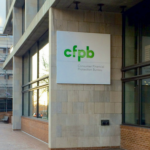A District Court judge in Florida has denied a defendant’s motion for summary judgment while partially granting and partially denying a similar motion from the plaintiff in a Florida Consumer Collection Practices Act case over alleged attempts to collect a debt after the plaintiff had filed for bankruptcy protection and allegedly notified the defendant that she was represented by counsel. The case, which has already been to the Eleventh Circuit Court of Appeals and back, was originally filed nearly six years ago.
A copy of the ruling in the case of Medley v. DISH Network can be accessed by clicking here.
The plaintiff signed up for satellite TV service from the defendant, but became unable to pay the bill, so she entered into a “pause” program that allowed her to suspend her service for up to nine months at a cost of $5 per month. The plaintiff filed for bankruptcy protection, listed the defendant as an unsecured creditor, and obtained a discharge. The plaintiff’s lawyer sent two faxes (this is back in 2014) to the defendant, notifying the defendant that the plaintiff was represented by counsel. The defendant sent five billing notifications to the plaintiff and made six calls, attempting to collect on the $5 monthly payment.
A District Court judge granted summary judgment in favor of the defendant on claims that it violated the FCCPA and the Telephone Consumer Protection Act. The plaintiff appealed the ruling to the Eleventh Circuit, which affirmed the ruling on the TCPA claim, but reversed the FCCPA ruling, saying that the defendant may have attempting to collect a debt that was discharged and that it contacted the plaintiff after being notified that she was represented by an attorney.
Whether the defendant knew that the $5 monthly payment had been discharged in bankruptcy is a factual dispute that a jury could see either way, said Judge Ciarlene Edwards Honeywell of the District Court for the Middle District of Florida. “Plaintiff has proffered enough evidence in the record from which a jury could reasonably infer that DISH knew the Pause debt was invalid and that it did not have the right to collect it,” Judge Edwards Honeywell wrote. “On the other hand, considering the evidence in a light most favorable to DISH, a jury could reach the opposite conclusion, as DISH has provided record evidence from which a jury could infer DISH did not know that the Pause debt was invalid.”
Regarding the claim that the defendant knew the plaintiff was represented by counsel and whether the representation was in reference to the bankruptcy filing and the original debt, or if it included the suspended account payment as well, again Judge Edwards Honeywell said she could see a jury taking either side.
“In a light favorable to DISH, DISH believed counsel’s letters concerned only debts discharged in bankruptcy and that the Pause debt incurred after the bankruptcy discharge was a separate debt that was not the subject of bankruptcy counsel’s letter,” she wrote. “On the other hand, in a light favorable to the Plaintiff, there is evidence in the record through counsel’s faxed letters that DISH knew Plaintiff was represented by counsel ‘with regard to her debts generally’ and ‘including the account ending in ‘8000’ and regarding ‘any other accounts of debts which [DISH was] attempting to collect from [Medley].’ A reasonable jury could read this letter and conclude that any reasonable debt collector would have known that counsel represented Medley regarding the debt DISH was trying to collect, and ‘infer that [the debt collector] had actual knowledge’ that Plaintiff was represented by counsel regarding the Pause charges.”









